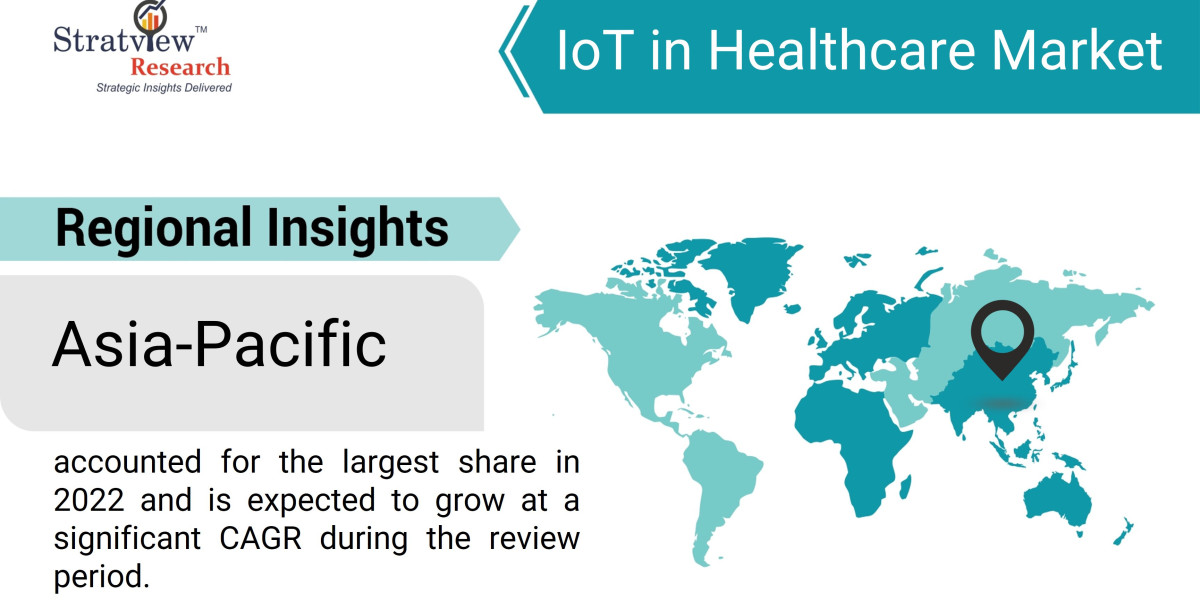The Internet of Things (IoT) is rapidly becoming a cornerstone of modern healthcare, offering solutions that enhance patient care, streamline operations, and improve overall healthcare outcomes. As the healthcare industry embraces digital transformation, new opportunities are emerging within the IoT healthcare market. These opportunities promise to drive innovation, improve efficiency, and offer more personalized healthcare experiences. This article explores the top emerging opportunities in the IoT healthcare market.
According to Stratview Research, the IoT in healthcare market was estimated at USD 106.17 billion in 2022 and is likely to grow at a CAGR of 20.78% during 2023-2028 to reach USD 329.68 billion in 2028.
1. Wearable Health Devices and Remote Monitoring
One of the most significant opportunities in the IoT healthcare market is the growing demand for wearable health devices. Smartwatches, fitness trackers, and biosensors allow for continuous health monitoring, tracking vital signs such as heart rate, blood pressure, oxygen levels, and even glucose levels. These devices are particularly valuable for chronic disease management, offering healthcare providers real-time data and alerts that can prevent hospital visits and improve patient outcomes. The wearable health device market is poised for exponential growth as consumers become more health-conscious and healthcare providers increasingly adopt remote patient monitoring (RPM) solutions.
2. Telemedicine and Virtual Care Platforms
Telemedicine has emerged as a major trend in the healthcare industry, offering patients the convenience of virtual consultations with healthcare providers. IoT devices play a key role in enhancing telemedicine by enabling remote diagnostics and virtual health assessments. For instance, connected medical devices like digital stethoscopes, ECG monitors, and blood pressure cuffs allow doctors to collect real-time data from patients during virtual appointments. With the ongoing development of 5G networks, telemedicine platforms will offer even faster and more reliable connections, making virtual care more accessible to patients, particularly those in remote or underserved areas.
3. Smart Hospitals and Connected Infrastructure
Smart hospitals represent another emerging opportunity in the IoT healthcare market. These facilities use connected devices to monitor patient conditions, track medical equipment, and manage hospital operations more efficiently. For example, IoT-enabled smart beds can monitor patient movement, reducing the risk of bedsores, while automated systems can manage medication distribution and optimize energy usage. The ability to integrate IoT into hospital infrastructure not only improves patient care but also enhances operational efficiency, reducing costs and minimizing errors.
4. Artificial Intelligence and Predictive Analytics
The integration of artificial intelligence (AI) with IoT devices is creating new possibilities for predictive analytics in healthcare. AI-powered algorithms can analyze vast amounts of data generated by IoT devices to predict patient health trends, identify risks, and personalize treatment plans. Predictive analytics can also help healthcare providers anticipate and prevent adverse events, such as hospital readmissions, by identifying high-risk patients early. This application of IoT and AI is revolutionizing patient care and offering new revenue streams for healthcare organizations through advanced diagnostic and treatment solutions.
5. Blockchain for Secure Healthcare Data
As IoT devices collect increasing amounts of sensitive patient data, ensuring the security and privacy of this information is paramount. Blockchain technology offers a solution to this challenge by providing a secure, decentralized platform for storing and sharing healthcare data. By integrating blockchain with IoT devices, healthcare providers can protect patient information from cyber threats while ensuring that data is accessible to authorized parties in real time. This emerging opportunity is particularly crucial as concerns over data breaches and privacy continue to grow in the healthcare industry.
Conclusion
The IoT healthcare market is brimming with emerging opportunities that promise to revolutionize how healthcare is delivered and managed. From wearable devices and telemedicine platforms to smart hospitals and AI-driven analytics, these advancements are shaping the future of healthcare by improving patient outcomes, increasing efficiency, and reducing costs. As IoT technology continues to evolve, it will open even more doors for innovation and growth, solidifying its role as a critical driver of healthcare transformation.


